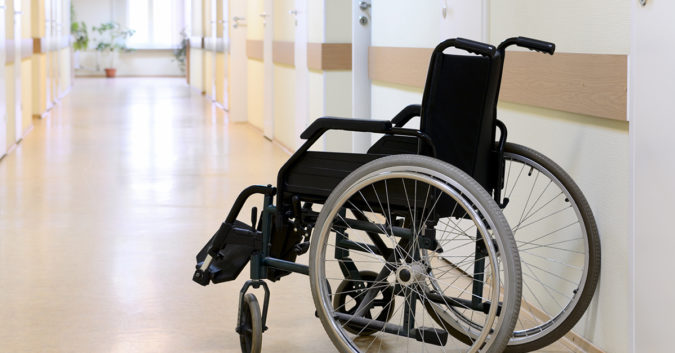Boston 25 News reported an alarming incident at the AdviniaCare Eastpointe nursing home in Chelsea, Massachusetts. On Saturday, September 10, 2022, a woman visiting the facility called 911 to report a patient had not received critical medications.
The fire department quickly responded and found several elderly residents roaming the halls and lining up at medication carts — yet no nursing home staff were present to assist residents.
Get a Free Nursing Home Case Review
What Happened at AdviniaCare Eastpointe?
The leading cause of nursing home abuse is a lack of facility resources and staffing. Staff members often work long hours to make up for staffing shortages.
At AdviniaCare Eastpointe, for instance, one of the nurses had left after a double shift. With no staff member able to cover the floor upon her leaving, the residents were left without care before firefighters arrived.
Poor facility management often leads this staff with little support and these issues continue, leading to staff working through burnout, overwork, and improper training. Eventually, staff members leave facilities if management is not committed to change.
Dr. Heidi Kummer of Boston, clinical care physician and the President of the Patient Advocate Certification Board, told Boston 25 News the registered nurse turnover rate at AdviniaCare Eastpointe is 22% higher than the national average.
“This is a case in point where you have a nurse who worked two shifts back-to-back, probably not planned to, probably stayed on because there was nobody to cover. But after two shifts, you yourself aren’t safe anymore to be taking care of someone else and giving out insulin,” Dr. Kummer told Boston 25 News.
Defining Abuse and Neglect in Nursing Homes
These stories are heartbreakingly common. The National Institutes of Health reports that 44% of senior citizens in long-term care settings suffer nursing home abuse in some way.
Nursing home neglect is experienced even more frequently, with 95% of residents suffering or witnessing the abuse firsthand. Poor living situations often continue because only a fraction of abuse instances are reported.
Nursing home residents can suffer the following types of abuse and neglect:
- Emotional, verbal, and physical abuse
- Medical neglect
- Neglect of basic needs, causing malnutrition and poor personal hygiene
- Psychological abuse
- Financial abuse or financial exploitation
- Social isolation
- Sexual abuse or sexual assault
Neglect is serious and can be the tipping point for many residents, leading to preventable hospital visits and even wrongful death.
Learn More: Your Legal Options If Experiencing Nursing Home Abuse or Neglect
Nursing Home Abuse Legal Help Available Nationwide
The heartbreaking incident at AdviniaCare Eastpointe sheds light on the issue of nursing home abuse and neglect that often goes unnoticed and unreported.
If you or a loved one is experiencing nursing home abuse or neglect, there are alternatives to suffering in silence. Your brave decision to act could help others.
At Sokolove Law, our experienced nursing home abuse lawyers are here to help. Over the last 45+ years, we’ve recovered over $314 Million for victims of nursing home abuse and neglect in Boston and across the nation.
Learn more about your legal options with Sokolove Law for free by filling out our contact form or calling (800) 995-1212.
